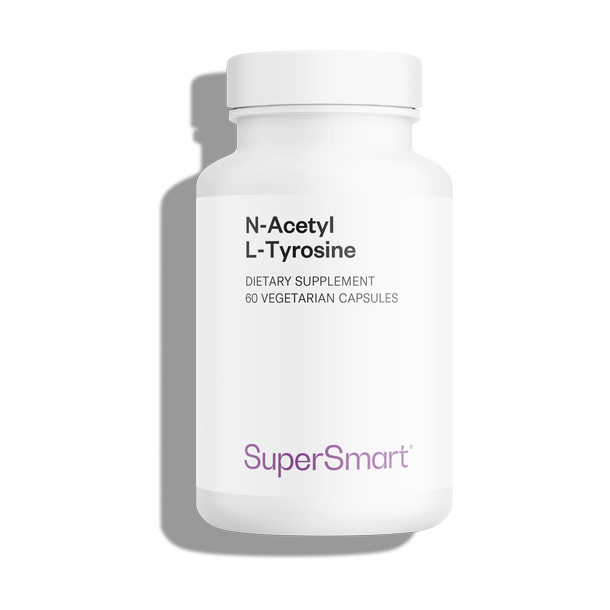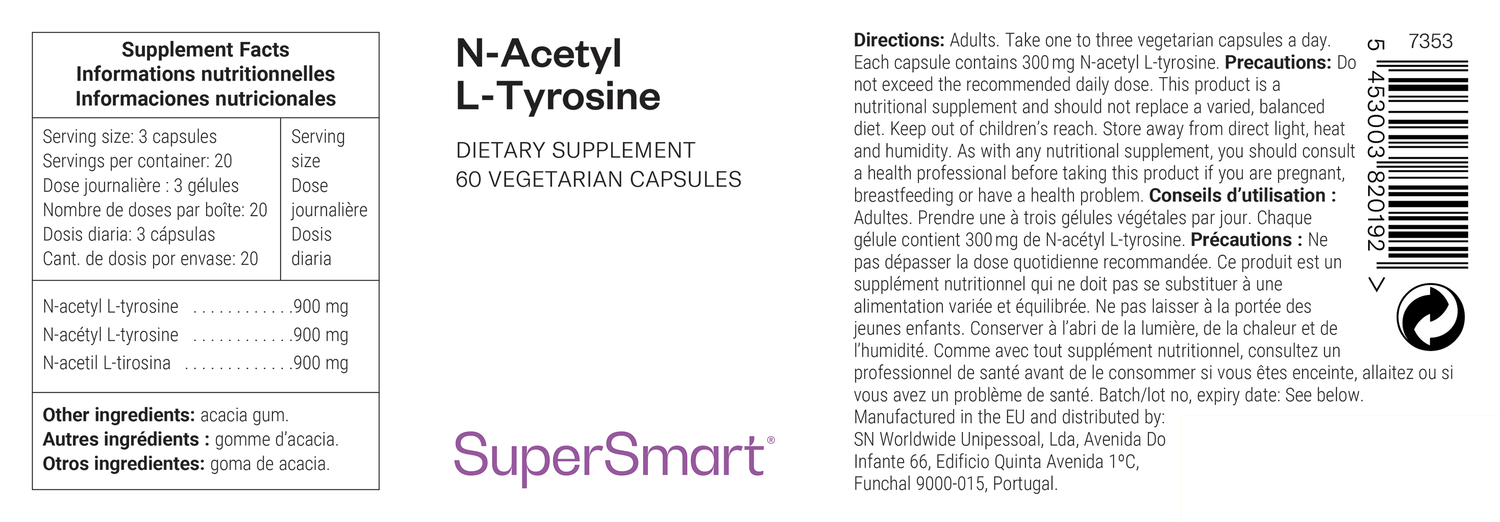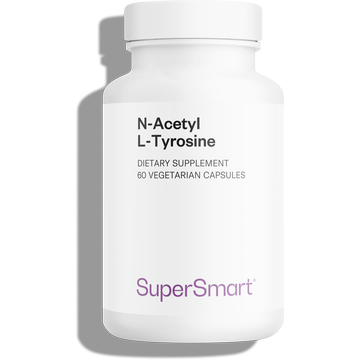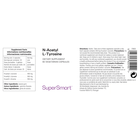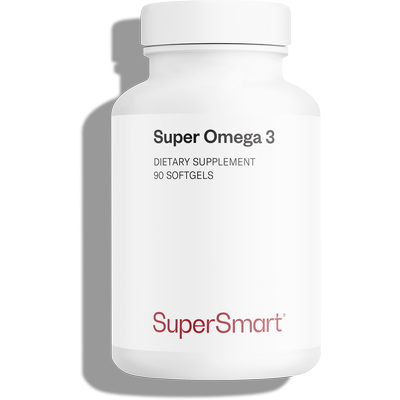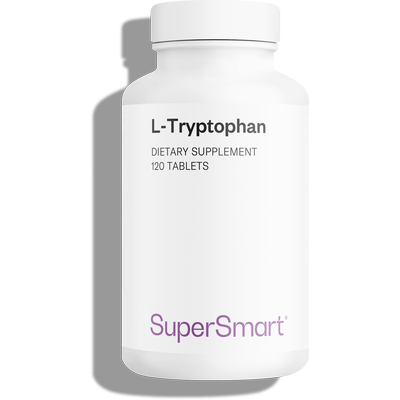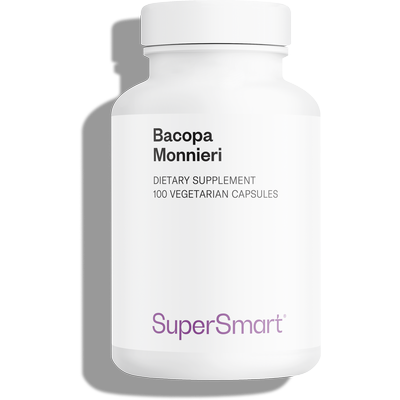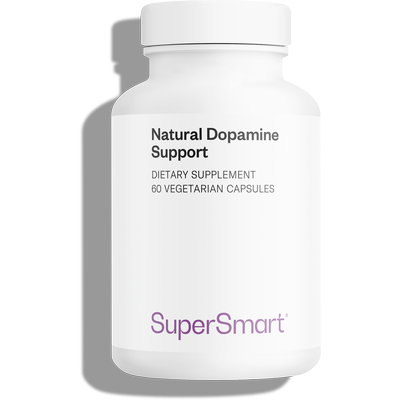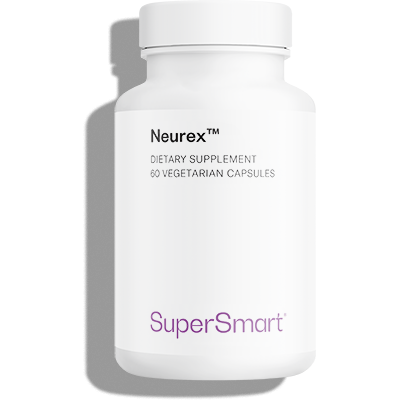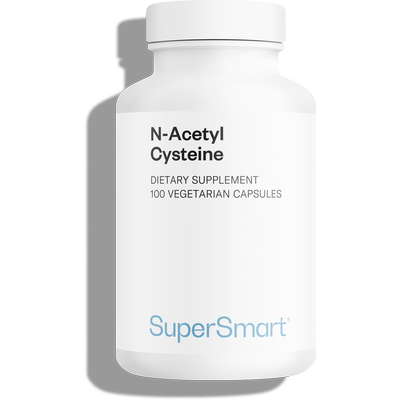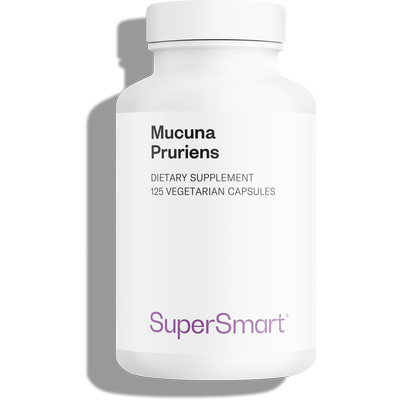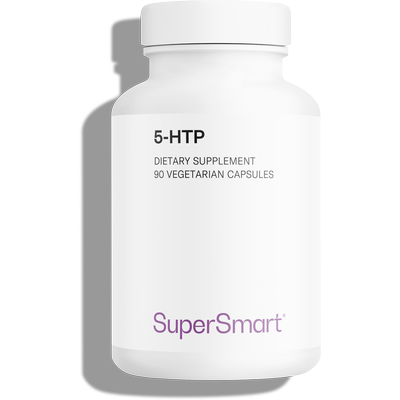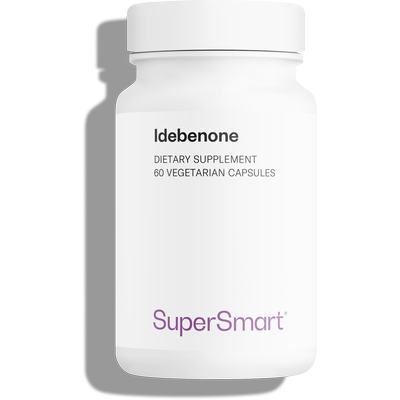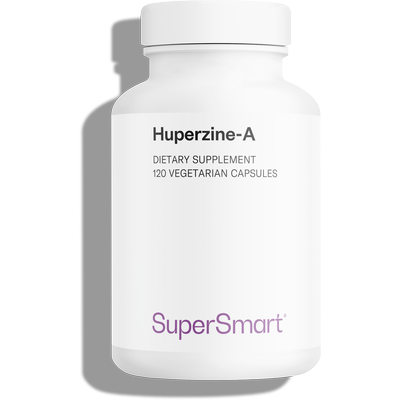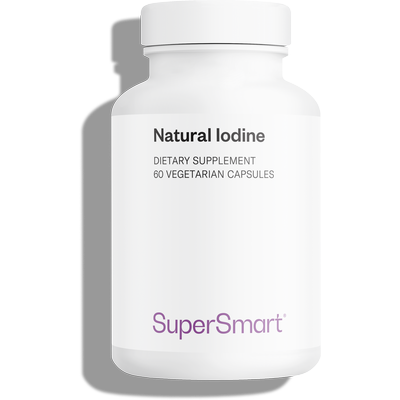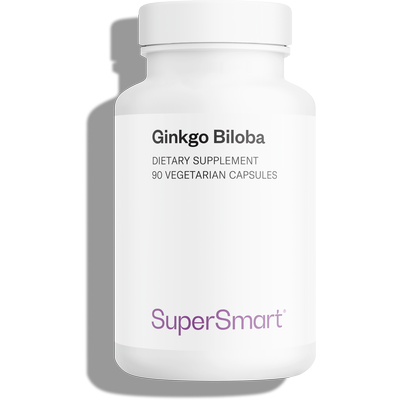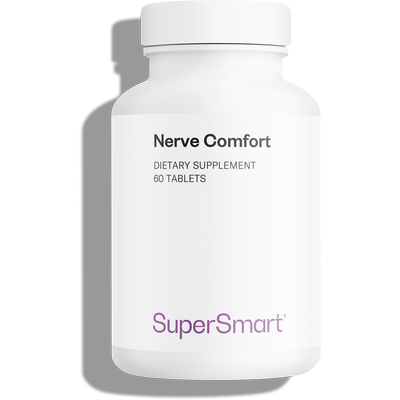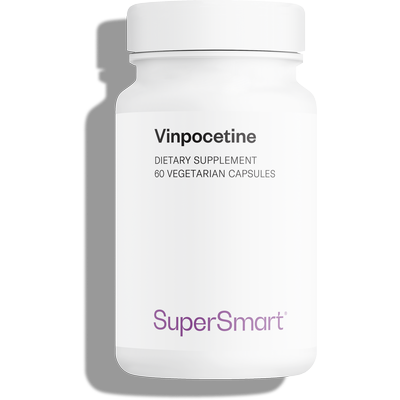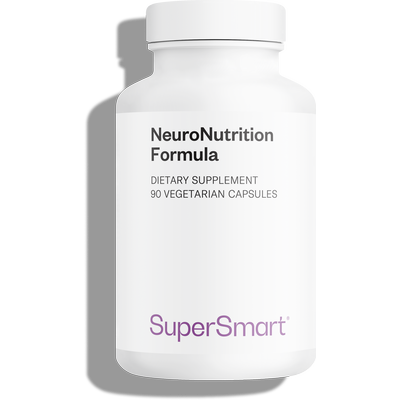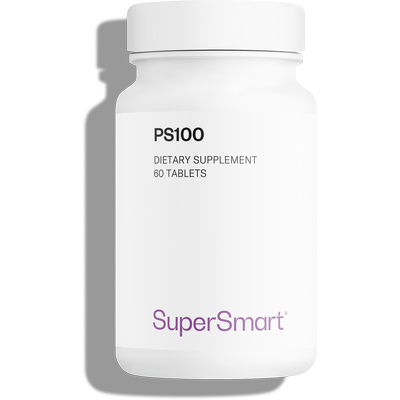Complete your selection
N-Acetyl L-Tyrosine is a dietary supplement containing tyrosine, a proteinogenic amino acid produced by the body from phenylalanine.
It plays a role in the production of melanin, a pigment responsible for skin colour, and in regulating mood.
Tyrosine dose: how much should you take a day?
Tyrosine is produced by the body from phenylalanine, the dietary requirements of which have been assessed by the WHO as being 1.5g-2g (1-2). However, when metabolic demand exceeds what can be produced endogenously, tyrosine needs to be obtained at sufficient levels from the diet, as is the case with other amino acids such as taurine, glycine, arginine and proline.
In such – relatively frequent – cases (fatigue, over-training, depression), tyrosine supplements can be helpful. Tyrosine actually helps to synthesise catecholamines – adrenalin, noradrenalin and DOPA, as well as melanin and thyroid hormones.
What happens to tyrosine in the body once it’s ingested?
Tyrosine is able to cross the blood-brain barrier and reach the brain, where a fraction of it is converted under the action of an enzyme called tyrosine-hydroxylase (4), which is in turn converted into the so-called ‘pleasure’ hormone. Studies show these conversions increase in situations of stress or intense cognitive exercises (5-7). In the medium term, however, stress is known to reduce the level and performance of catecholamines, probably due to the fact that the amino acids that help to produce them become depleted.
A number of pathological conditions are associated with decreased synthesis of catecholamines and the ‘pleasure hormone’ (8-9).
What is in it N-Acetyl L-Tyrosine
Any questions?
N-acetyl L-tyrosine supplements are usually taken by sportspeople to combat fatigue (physical and mental) and to increase resistance to stress. The scientific literature reports no risks associated with such use but does not recommend it for those with Parkinson’s type disorders or thyroid problems.
The recommended dose is around 600mg of tyrosine a day (2 capsules), to be taken at the beginning of the day when the rate of catecholamine synthesis in the brain is at its highest.
Tryptophan is an essential amino acid, and in particular, a serotonin precursor. Unlike tyrosine, tryptophan is found in plant-source foods because animals are not able to synthesise it. However, both these amino acids are involved in producing neurotransmitters, so it is worth considering combining tyrosine supplementation with that of tryptophan.
may 7 2021
good good good
march 9 2024
Muy buen producto
february 6 2024
Bon produit mais dosage insuffisant
january 15 2024
Questo integratore mi ha aiutato fin da subito a stare meglio mentalmente
december 14 2023
**********
Need help?
You may also like
